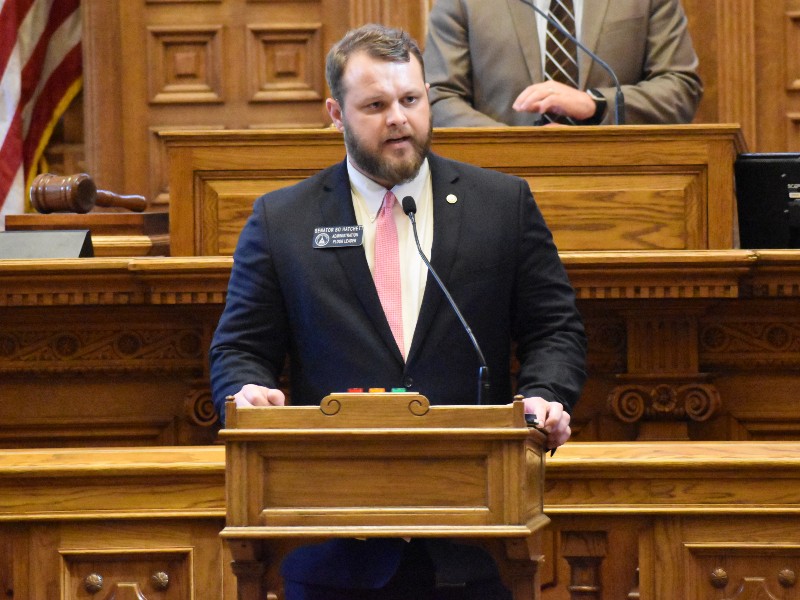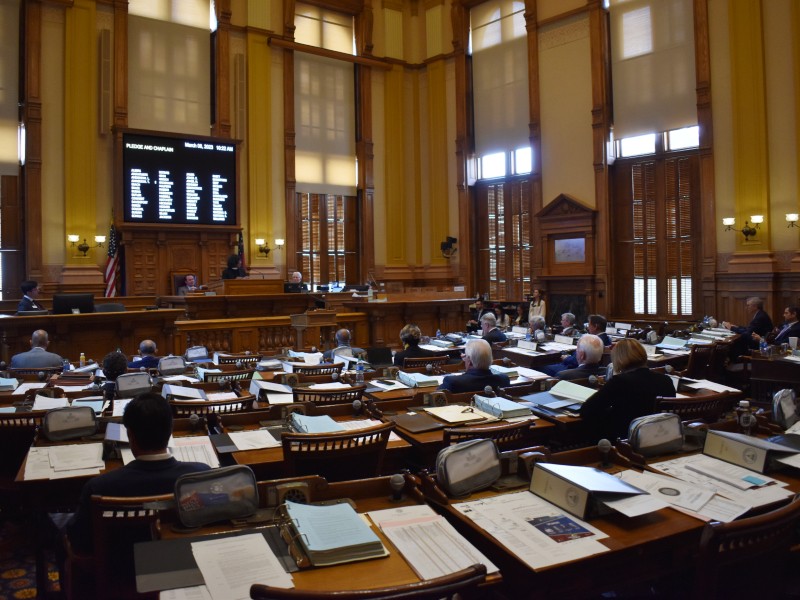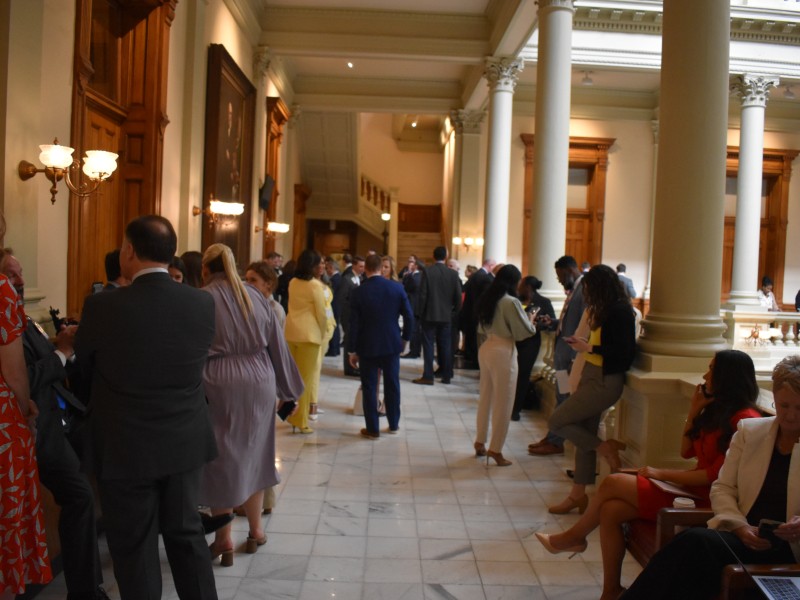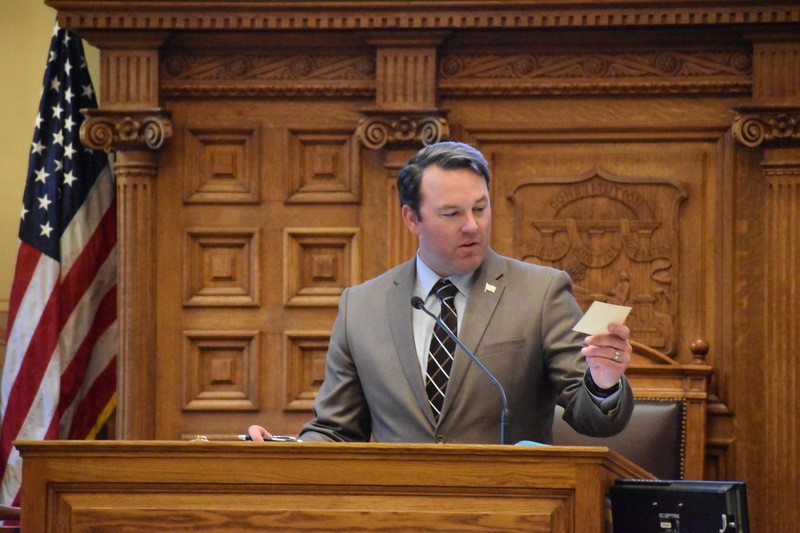AccessWDUN spent Monday at the Georgia Capitol learning more about Crossover Day, how the state Senate floor functions and what gets a bill passed into law.
The hustle and bustle of the Senate floor isn’t something many catch a glimpse of when watching the legislative session from home. While one senator addresses the room at large, others are jotting notes, trading ideas, sifting through mounds of bill legislation and accepting memos from people anxiously waiting outside the chamber — and that’s just a normal day during each year’s session.
Then Crossover Day hits and the commotion is multiplied as 70-plus bills pump through the chamber, bells ringing, yeas and nays sounding out. The gears of government turn under heated debate and history is often made during this pivotal day.
Crossover Day is a benchmark during the 40-day legislative session. In order for a proposed bill to have the chance to be adopted into law, it must be voted on and passed by either the House or the Senate, or else it’s put on hold until the next year's legislative session.
“Crossover Day is the day that we agree upon with the House and their leadership, as the day that a bill has to pass either the Senate or the House by this day in order to be considered by the other chamber,” District 50 Senator Bo Hatchett said. “So if you have a bill that's alive in either the House or the Senate, and it doesn't get voted out today, it doesn't have a chance of final passage until next legislative session.”
This time requirement is what prompts more action as legislators drive to get their bills passed into law. It also spurs crowds of lobbyists and citizens to watch on from the upper gallery and hallway televisions as officials debate the more controversial bills.
The usual progression on Crossover Day starts with Lieutenant Governor and Senate President Burt Jones introducing a bill. The floor secretary then reads the content verbatim, and the sponsoring senator addresses the floor from the forward pulpit. The topic is then opened up for debate before the minute-long voting period begins. Senators vote electronically from their desks. Once voting is over, the results are immediately displayed on a large screen, showing green names for those voting in favor, and red names for those voting against.
An average day looks slightly different on the Senate floor. While senators didn’t leave the capitol until well past 11 p.m. Monday, Hatchett said typically they wrap up earlier in the afternoon, giving them time to split into smaller groups.
“Well, a normal day, we would have a lot of meetings after we gavel out so typically we're out by 1:00 p.m., 1:30 p.m.,” Hatchett said. “And then we start the committee process where we're vetting bills, voting them out. It's not unusual to have committee meetings run to 8 p.m. So, on a typical day, you could have a committee meeting as early as 7:00 a.m. in the morning and stay as late as 8:00 p.m. The committee meetings are really where bills are vetted. You’ve got to take them seriously or you end up with bad legislation.”
This year Crossover Day saw several big-ticket bills. At the forefront was legislation in support of a constitutional amendment for sports betting.
“It was a very significant bill,” Hatchett said. “As you can see, by the amount of debate that it got — obviously, there were a couple of other bills that were heavily debated on the floor. The school voucher bill was a big one. But I think the sports betting bill is probably the biggest one we saw.”
Senate Resolution 140, or the resolution to create a general law allowing for sports betting, was presented by District 46 Senator Bill Cowsert. It fell short of the finish line, being defeated in a 30 to 26 vote. While more senators voted in favor than against, the resolution required a two-thirds majority vote in order to pass.
The resolution’s companion bill, Senate Bill 172, which would allow for the regulation and taxation of sports betting in Georgia, was subsequently tabled until the next session due to SR 140’s defeat.
Other major bills that saw action on Crossover Day included legislation that banned hospitals and other licensed healthcare facilities from treating gender dysphoria in minors using certain surgical procedures, passing in a 33 to 22 vote. Senate Bill 233 also succeeded, establishing the Georgia Promise Scholarship Act, along with Senate Bill 146, allowing customers with electric vehicles to pay based on the amount of power used to charge their cars, rather than how long they spend charging.
While senators from around the state participated in heated debates all day, the overall atmosphere under the Gold Dome was that of comradery and problem-solving. There was applause, laughing and even the occasional joke shared between colleagues.
The 2023 legislative session continues until March 29.












